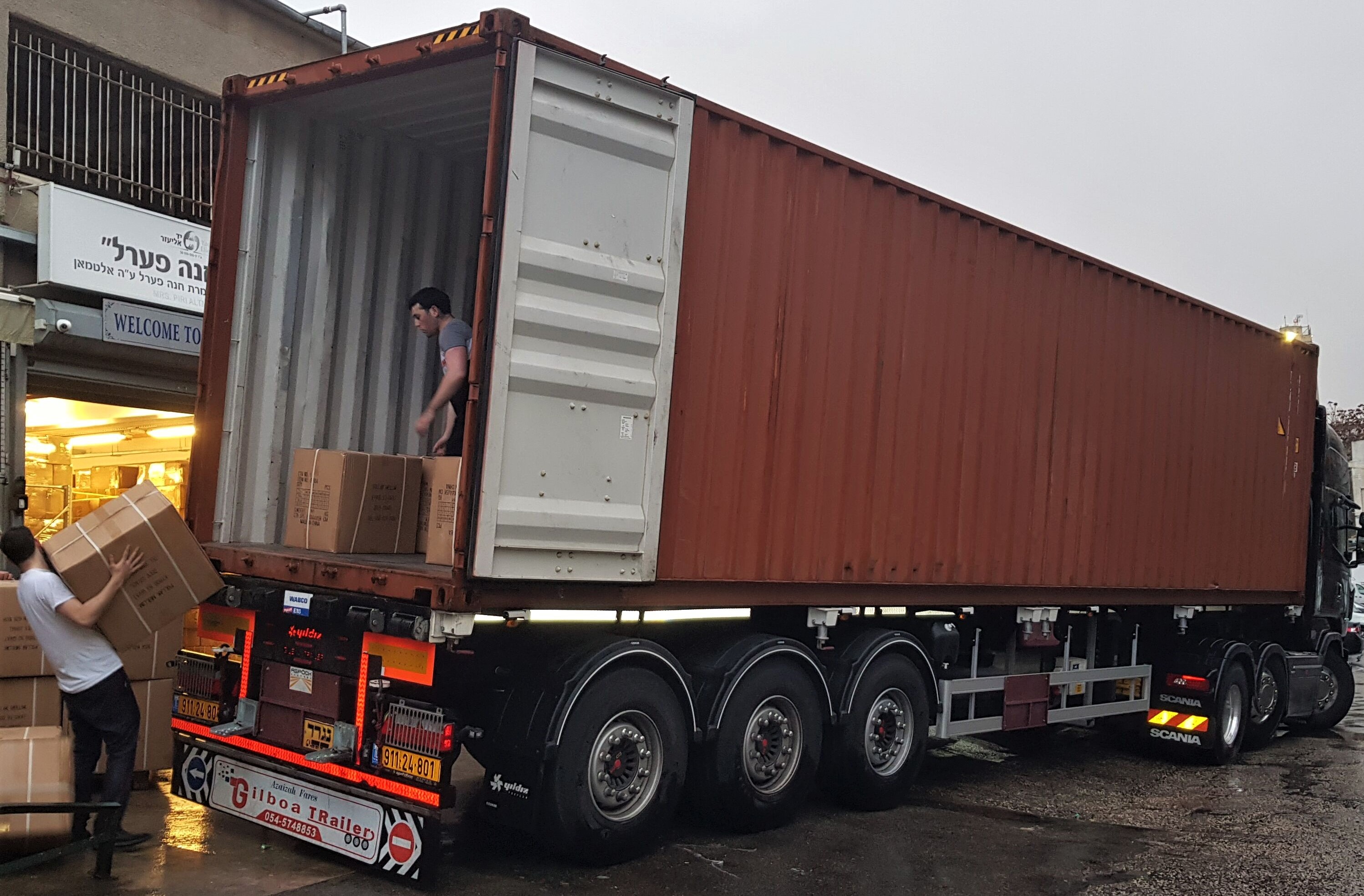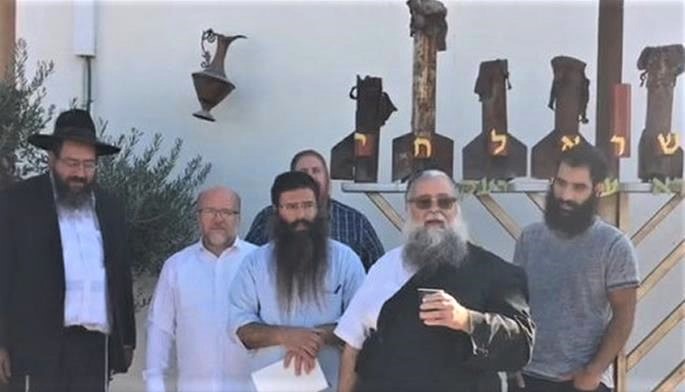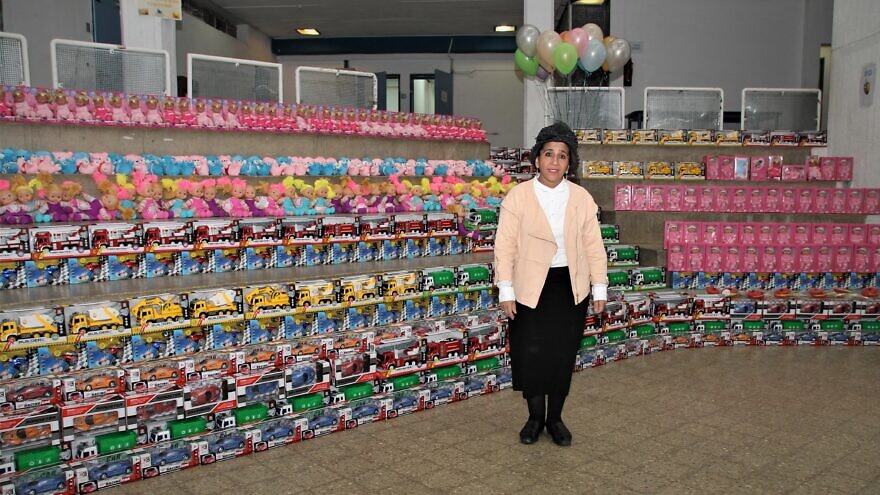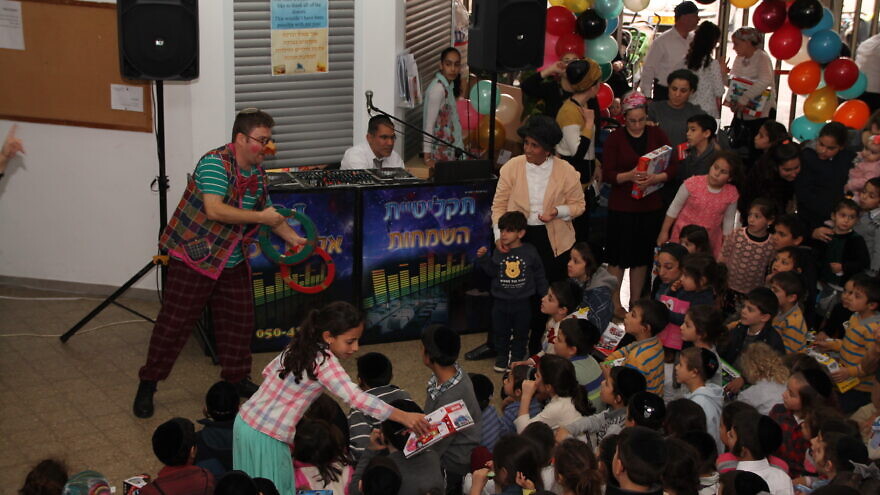The staff and volunteers at Yad Ezra V’Shulamit’s children’s center in Jerusalem began noticing that one little girl only came to the after-school program every other day.
And when they asked her why, she told them.
“It’s because my sister and I only have one coat between us, so I get to wear it and come every other day, and she gets to wear it and come the other days.” The charity’s leadership then began noticing other children at the centers who were also under-protected from the elements, including a little boy in sandals and a girl in a lightweight jacket with a broken zipper. Soon, they launched their first annual Hanukkah coat drive.
That was eight years ago, and the project has taken on a life of its own—to the point that last year, some 4,600 coats were distributed to youngsters around Israel, specifically in Jerusalem, Tzfat and Bat Yam. “All of these towns get pretty cold in the winter,” says director Tefilla Buxbaum. “Coats are usually pretty expensive, and most of these families just don’t have the money.”
Yad Ezra has a broad impact on other aspects of struggling Israelis’ lives as well. For more than three decades, they’ve been helping fight poverty with a range of programs from 3,000 food baskets each week and 35,000 for the holidays, two children’s centers caring for and feeding more than 500 children every day (a third is planned for Tzfat in the next year) and 25 youth clubs helping more than 5,000 teens at risk get back on track. Plus a range of tutoring services, breakfasts and school supplies for kids, and emergency relief in towns under attack—not to mention career counseling for the adults and help with paying for life-cycle events.
Other Israeli organizations that sponsor cold weather and Hanukkah programs for kids living under the poverty line include Yad Eliezer Israel, whose Winter Warmth Campaign distributes 6,000 winter coats ($18 each), as well 3,000 for adults ($27), 600 heaters ($53) and 12,000 quilts ($12.50). “The needs here are huge so the solution has to be huge,” says spokesman Yossi Kaufman. “Without coats, children end up arriving at school freezing cold and embarrassed.”
Operating since 1980, Yad Eliezer also makes it its business to get food vouchers for local markets into the hands of families who need them and sponsors an early-childhood intervention program and a Big Brother Big Sister one, as well as job training and emergency assistance for winter heating costs. In addition, some 4,000 families are helped with monthly food boxes and more than 10,000 at holiday time; and help goes monthly to thousands of widows and orphans and, for the holidays, to soldiers who also lack basic necessities.
“Our two sons have always gotten coats as hand-me-downs,” said one mom. “But not only were the coats they got keeping them warm throughout the chilly Jerusalem winter, they were also the first new coats Yoni and Menachem have ever had.”

Ohr Meir & Bracha: The Terror Victims Support Center has a special focus: Helping individuals and families who have experienced terror, as founder Rebbetzin Liora Tedgi did after a bomb went off in her Jerusalem neighborhood in 2002. Pledging then to spend the rest of her life helping other victims, since that day she has been spearheading a weekly food distribution of fresh fruits and vegetables, challah, rice and dry goods for 400 families a week and 600 just before the holidays; those packages also include chicken and eggs.
This will also be the 16th year that Ohr Meir & Bracha hosts a Hanukkah party for 400 children, all from families who have been victims of terror (many of the parents are disabled and can’t work) or are living well below the poverty line. Featuring refreshments, music, a clown doing magic tricks and gifts (including dolls and remote-control cars), the party attracts youngsters and parents from across the Jerusalem area.
“That was the most exciting thing for my children,” said one mother. “They loved the clown, and now they each have a new toy that’s just theirs.”
The party was such a success from the start that out of it was born Ohr Meir & Bracha’s Kids Corner afterschool program, which gives 60 youngsters, many of them orphaned by terror, a hot meal and help with their homework. And 400 got backpacks filled with school supplies. “Last year, we were surprised to receive 50 scarves a woman in America knit for the kids and one of our food-packing volunteers made beautiful tefillin and tallis bags for a boy in need,” says spokeswoman Esther Shamel. Looking forward: renovating and furnishing a larger space with room for more kids to attend after school, as well as a dental clinic, summer camp and job-training center.

Among Israel’s most traumatized children are those living in the vicinity of Sderot near the Gaza border, which has made their homes, schools and community targets of Hamas rockets, often several a week, keeping everyone on high alert.
“PTSD runs rampant here,” says Rabbi Asher Pizam, whose father Rabbi Moshe Zeev Pizam, was sent by the late Lubavitcher Rebbe to establish Chabad of Sderot 34 years ago. “My own kids cry when they hear the sirens.”
On every Hanukkah since, the Chabad center has hosted nightly activities for the local families, including a children’s Hanukkah party. (A highlight this year: a new basketball court paid for when an American bar mitzvah boy asked his guests to fund it in lieu of gifts). They also distribute 3,000 small menorahs, 500 food vouchers and 10,000 sufganiyot (traditional jelly-filled doughnuts) and, when the security permits, they light the Hanukkah candles with the soldiers on base.
One reminder of where they are: kindling the candles in a one-of-a-kind oversized hanukiyah (Hanukkah menorah) that the younger Rabbi Pizam made of rockets that have fallen on the area.
‘The self-esteem that goes with it’
As impressive as their numbers are, every one of the organizations mentioned are keenly aware of the children they don’t yet reach.
“We could easily double the number of kids we help,” says Yad Ezra’s Buxbaum, “starting with their own brothers and sisters, who would love to have warm outerwear and blankets this winter.”

Still, for those they do affect, it may be the parents who convey best the impact of these programs on each child touched by these programs.
“My daughter was embarrassed to be wearing a coat that didn’t zip,” said the mother of the little girl whose jacket had the broken zipper. “So it isn’t just the warmth she feels now, but the self-esteem that goes with it.”
Or as one dad whose family had just returned from the Yad Eliezer coat distribution put it: “We thought, ‘Is it worth it to go there? Likely they’ll be used shmattes.’ But my wife came home and said it was like a store, and the coats themselves were beautiful—of the best quality. She said everything was done with such dignity.”


























